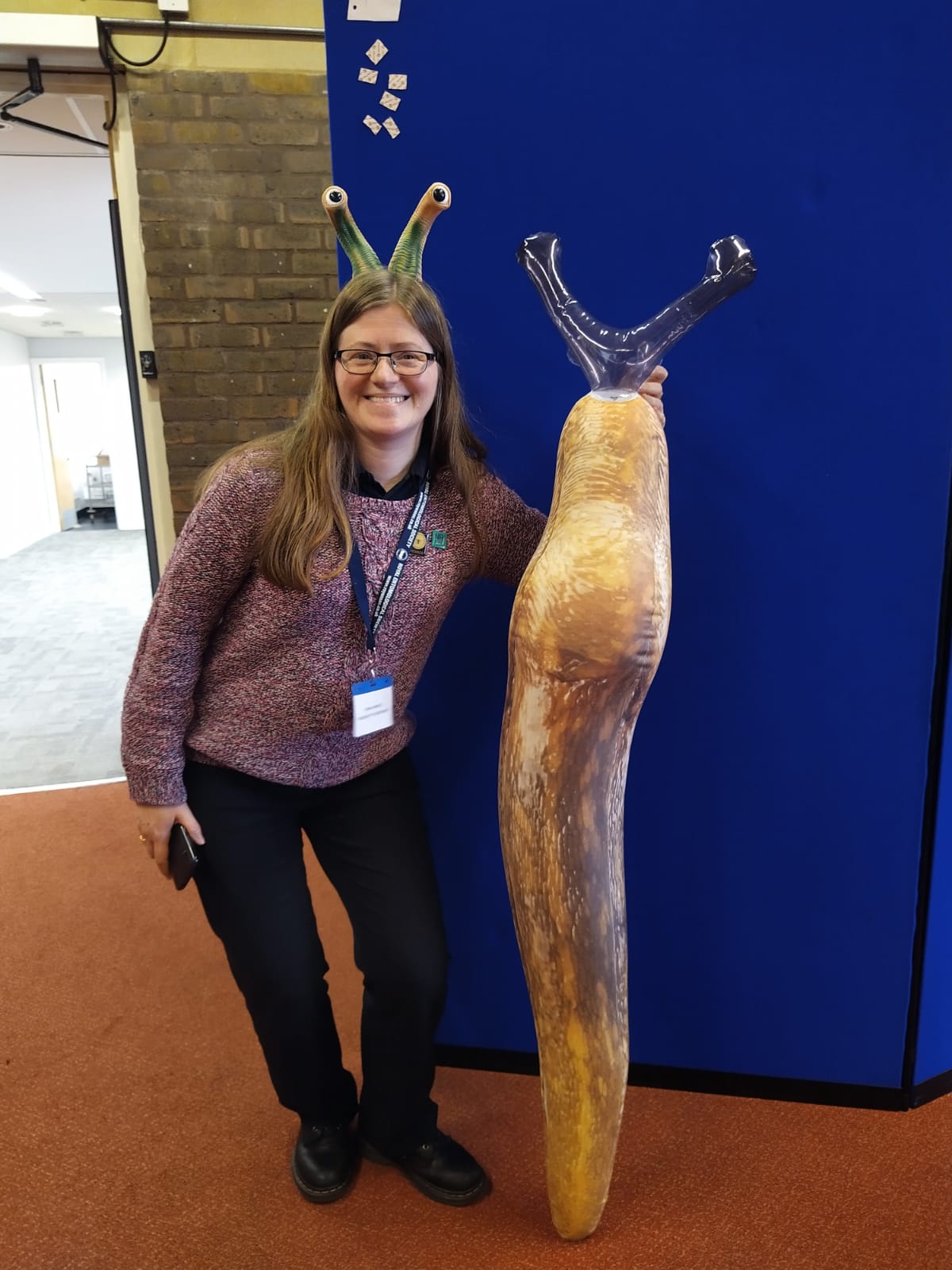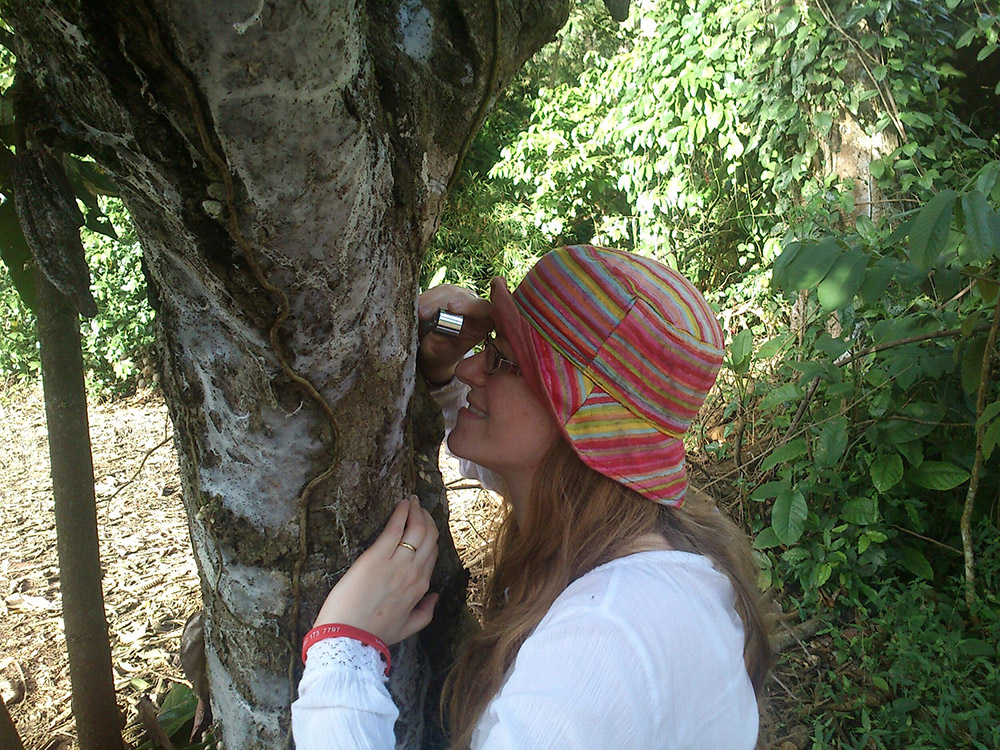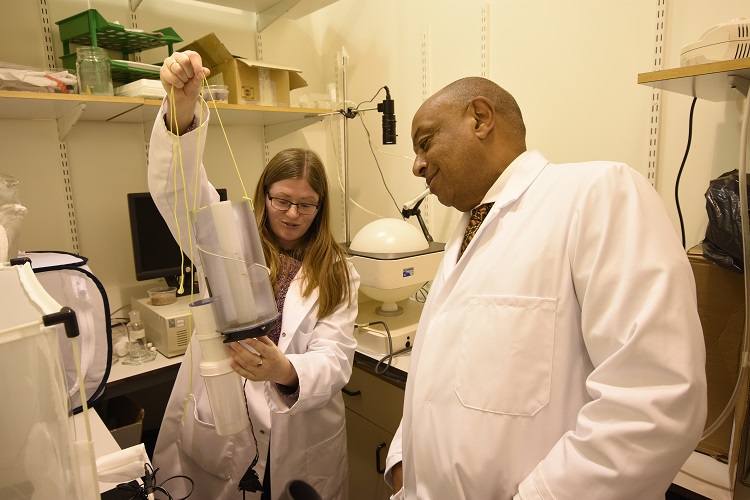Dr Sarah Arnold
Senior Lecturer - Insect Behaviour and Ecology
Why or how did you get into science?
At school I realised I was good at science in general, but biology in particular enthused me, and I realised I wanted a pathway that was more curiosity-driven than medicine/veterinary science. So, I applied to study Natural Sciences at university, eventually specialising in Plant Science.
 Did anyone in particular influence you?
Did anyone in particular influence you?
Several academics on my undergraduate degree really inspired me with their enthusiasm and their ability to communicate science clearly. Particularly, Oliver Rackham and his deep-seated love of woodland ecology has stayed with me long-term. On a geekier note, as a teenager I was quite a big Star Trek fan, so maybe I've always loved the idea of exploring the wonder and amazing diversity in strange life-forms!
What is your particular field and how did you choose it, or did it choose you?
My interest is in insect science, especially the behaviour and ecology of pollinating insects such as bees and flies. I fell into it semi-accidentally, by applying for a dissertation project on bees and flowers; but it was a happy accident as nearly 15 years later, here I am still!
What advice would you give to other young women reading this who are thinking of pursuing a career in science?
Science can be really rewarding, but also tough as you have to deal with rejection quite often (for example, of papers submitted and grant applications) - so building a support network of people who can empathise through the rough patches helps a lot. Most scientists have suffered ‘imposter-syndrome’[1]; and despite old stereotypes of science as a male activity your gender does not make you any less capable at research, teaching or other core tasks in science!
 Is there anything you wish you had done differently in your career so far?
Is there anything you wish you had done differently in your career so far?
I wish I had been more confident to seek out and request additional training when I was younger instead of struggling alone - and I wish I'd learned R much much earlier!
What does the significance of this, the International Day of Women and Girls in Science, day mean to you?

Link to NRI profile: https://www.nri.org/people/arnold-sarah
[1] Imposter syndrome refers to feelings of self-doubt and inadequacy that persist despite academic or professional success. Achievements are often attributed to luck or good timing rather than one’s own efforts. It is experienced by women and men, although it is more common in women. Clance, P.R. & Imes, SA. (1978), The Imposter Phenomenon in High Achieving Women, Dynamics and therapeutic intervention. Psychotherapy: Theory, Research & Practice. 15 (3): 241–247.

